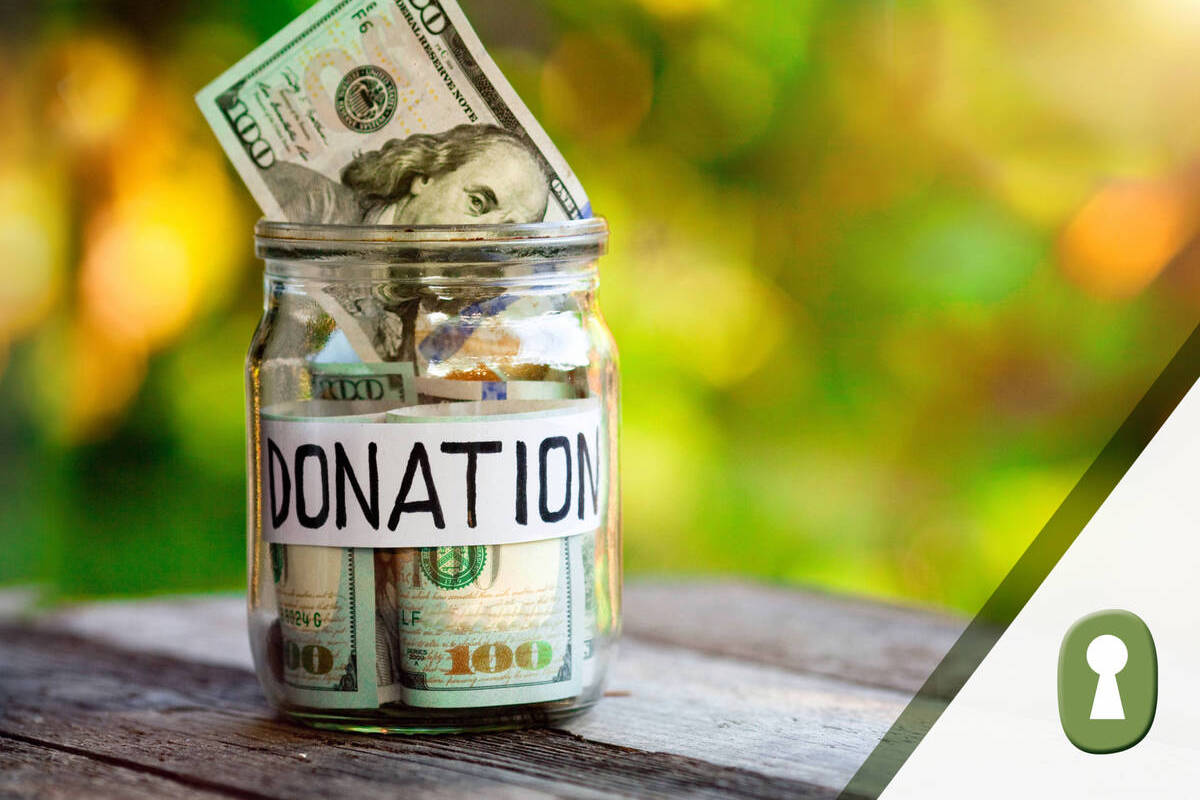The Power of Giving: Unlocking the Tax Benefits of Jewelry Donations
Related Articles: The Power of Giving: Unlocking the Tax Benefits of Jewelry Donations
Introduction
With enthusiasm, let’s navigate through the intriguing topic related to The Power of Giving: Unlocking the Tax Benefits of Jewelry Donations. Let’s weave interesting information and offer fresh perspectives to the readers.
Table of Content
The Power of Giving: Unlocking the Tax Benefits of Jewelry Donations

Jewelry, a symbol of personal style and sentiment, can also become a powerful tool for charitable giving. By donating jewelry to a qualified non-profit organization, individuals can not only support worthy causes but also potentially receive valuable tax deductions. This article explores the intricacies of jewelry donations and their associated tax benefits, providing a comprehensive guide for those seeking to make a meaningful contribution while maximizing their financial advantage.
Understanding the Tax Deduction Process
Donating jewelry to a registered charity can lead to a tax deduction, but it’s crucial to understand the process and the associated regulations. Here’s a breakdown:
- Fair Market Value: The tax deduction for donated jewelry is based on its fair market value. This is the price a willing buyer would pay for the jewelry in an open market, not what the donor originally paid for it. Determining fair market value can be complex and often requires professional appraisal.
- Appraisal Requirements: For donations exceeding a certain threshold, the IRS mandates a qualified appraisal by a certified appraiser. This appraisal must be obtained before the donation and should include details about the jewelry’s description, condition, and fair market value.
- Documentation: Maintaining proper documentation is critical for claiming the tax deduction. This includes the donation receipt from the charity and the appraisal report (if required). These documents serve as proof of the donation and its value.
Types of Jewelry Donations and Their Implications
Not all jewelry donations are created equal. The type of jewelry donated and its condition can significantly influence the tax deduction:
- Precious Metals: Donations of jewelry made from precious metals like gold, silver, and platinum are generally more valuable and, therefore, lead to a higher tax deduction. However, the condition of the metal and the presence of gemstones can also influence its value.
- Gemstones: Gemstones, such as diamonds, rubies, emeralds, and sapphires, contribute significantly to the overall value of jewelry. The size, clarity, cut, and color of the gemstones are crucial factors in determining their fair market value.
- Vintage and Antique Jewelry: Antique or vintage jewelry often holds higher value due to its historical significance and craftsmanship. It’s essential to have a professional appraisal to accurately assess its worth.
- Costume Jewelry: While costume jewelry may not be as valuable as precious metal or gemstone jewelry, it can still be donated to organizations that utilize it for fundraising or craft projects. The tax deduction for costume jewelry is typically lower.
Finding the Right Charity for Your Jewelry
Choosing the right charity for your jewelry donation is crucial. Some organizations specialize in accepting and selling donated jewelry, while others may have specific needs or restrictions.
- Jewelry-Specific Charities: Organizations dedicated to accepting and selling donated jewelry often have expertise in handling and evaluating such items. They may have established partnerships with jewelers or auction houses, ensuring fair market value for donated pieces.
- General Charities: Many general charities accept jewelry donations, but their ability to handle and monetize them may vary. It’s essential to inquire about their policies and processes for accepting jewelry donations.
- Specific Needs: Some charities may have specific needs for jewelry donations. For example, a charity supporting cancer research might accept donated jewelry for fundraising events or to create personalized gifts for patients.
Tips for Maximizing Your Jewelry Donation’s Impact
To ensure a smooth and beneficial donation process, consider these tips:
- Clean and Organize: Before donating, clean and organize your jewelry. This not only makes it easier to appraise but also enhances its overall appeal.
- Professional Appraisal: For valuable jewelry, a professional appraisal is essential. It provides accurate documentation for tax deduction purposes and ensures a fair valuation for your donation.
- Contact the Charity: Before donating, contact the charity to inquire about their acceptance criteria, appraisal requirements, and donation procedures.
- Consider the Charity’s Needs: Choose a charity that aligns with your values and whose mission resonates with you. Consider the charity’s ability to utilize your donation effectively.
- Keep Records: Retain all documentation related to the donation, including the appraisal report and the donation receipt. These documents are crucial for claiming your tax deduction.
FAQs Regarding Jewelry Donations and Tax Deductions
1. What is the maximum amount I can deduct for a jewelry donation?
The maximum amount you can deduct is the fair market value of the jewelry, as determined by a qualified appraisal.
2. Do I need an appraisal for all jewelry donations?
The IRS requires an appraisal for donations exceeding a certain threshold. However, it’s generally recommended to obtain an appraisal for any jewelry you believe to be valuable.
3. Can I donate jewelry to a family member’s charity?
Generally, donating to a charity closely associated with a family member can raise ethical concerns and potential tax implications. It’s best to donate to independent charities.
4. Can I donate jewelry I inherited?
Yes, you can donate inherited jewelry. However, the tax deduction is based on the fair market value at the time of the donation, not the original purchase price.
5. What happens if the charity sells my jewelry for less than the appraised value?
The tax deduction is based on the appraised value, not the actual sale price. However, you may be required to provide additional information to the IRS if the sale price differs significantly from the appraised value.
6. Can I donate jewelry that has sentimental value?
Yes, you can donate jewelry with sentimental value. However, it’s important to understand that the tax deduction is based on the fair market value, not the sentimental value.
7. What if I don’t have the original receipt for the jewelry?
You can still donate the jewelry. The tax deduction is based on the fair market value at the time of the donation, not the original purchase price.
8. Can I donate jewelry that is damaged or broken?
Yes, you can donate damaged or broken jewelry. However, the appraisal will likely reflect a lower value due to its condition.
Conclusion
Donating jewelry to a qualified charity can be a rewarding experience, allowing individuals to support worthy causes while potentially receiving valuable tax benefits. By understanding the process, choosing the right charity, and following the necessary procedures, individuals can make a meaningful contribution while maximizing their financial advantage. Remember, every donation, no matter the size, can contribute to a better future.








Closure
Thus, we hope this article has provided valuable insights into The Power of Giving: Unlocking the Tax Benefits of Jewelry Donations. We hope you find this article informative and beneficial. See you in our next article!
